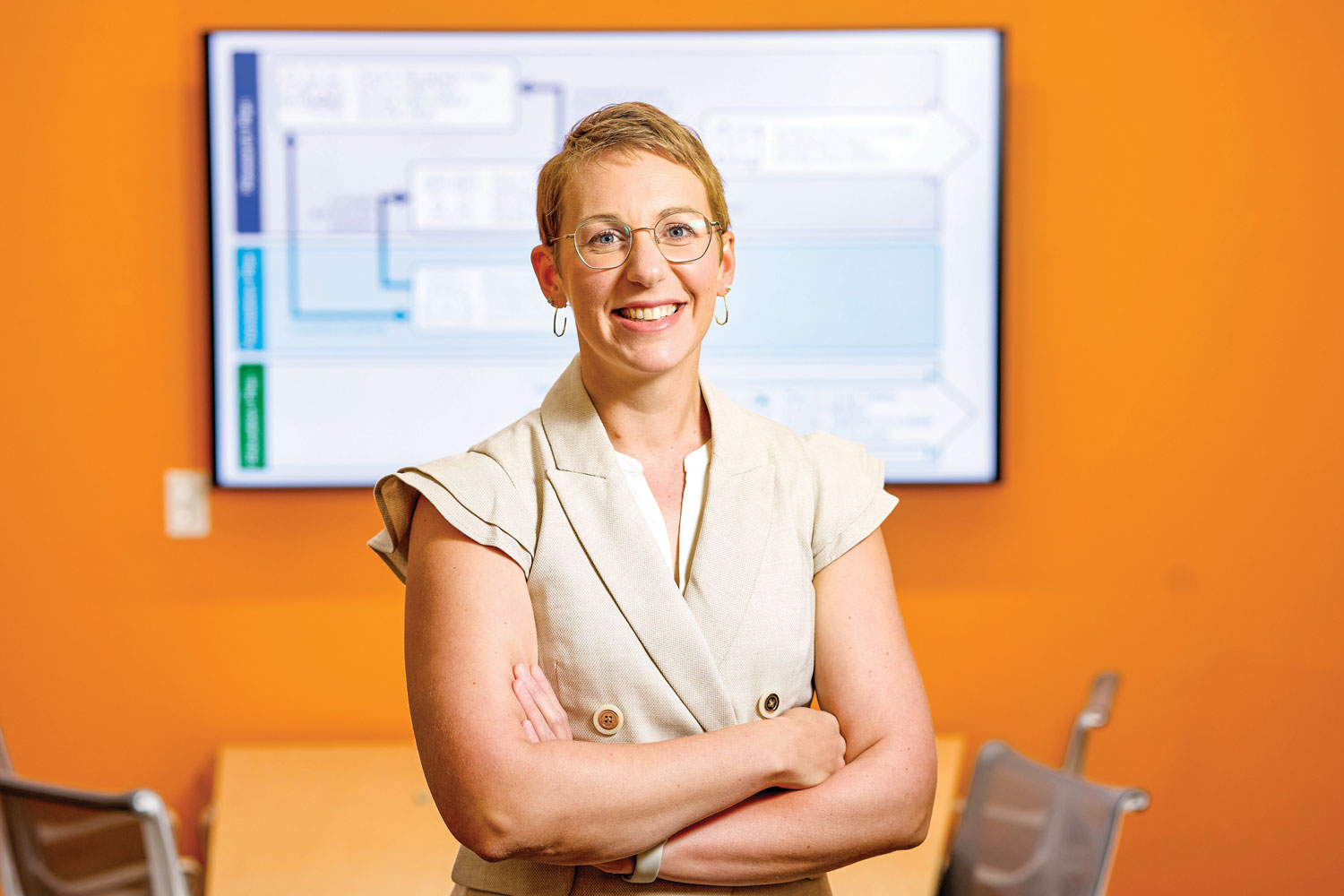
Courtney Faber is involved in many aspects of engineering education: She teaches first-year engineering students, develops and teaches courses for engineering graduate students who want to learn about education theory and teaching practices, and leads a research group focused on transforming engineering education.
By Amy Blakely. Photography by Shawn Poynter.
A senior lecturer and research associate professor in the Engineering Fundamentals program and director of the Engineering Education Graduate Certificate program, Faber has received a five-year, $590,963 Early CAREER Award to improve the effectiveness of research teams trying to make transformative changes in engineering education.
Faber will be studying interdisciplinary engineering education research teams and developing trainings to help those teams function more effectively despite their members’ epistemic differences—that is, differences in the theories of knowledge associated with different disciplines, which lead to differences in thinking.
I am dedicated to providing researchers with the awareness and tools to address epistemic differences because I have personally experienced the consequences of not addressing them.”
She explained that while these differences in thinking are key to her field’s success, they create tensions that prevent many teams from achieving their desired impact. Teams can spend a significant amount of time and energy making decisions about how research will be carried out, increasing the time spent on projects and limiting the team’s ability to put their research into action.
Faber has a bachelor’s degree in bioengineering from Clemson University, a master’s degree in biomedical engineering from Cornell University, and a doctorate in engineering and science education from Clemson.
Her interest in engineering education research started when she was a student in an undergraduate anatomy course that was team taught by a biology professor and a biomedical engineering professor.
Faber noticed that the biology students in the class did better when the biology professor was teaching; likewise, the biomedical engineering students did better when the biomedical engineering professor was teaching.
She realized that the professors focused on different types of knowledge and used different teaching methods. The students also had different ways of thinking through course material and asking questions.
She wanted to understand why―and explore how to meld different approaches to make teaching more effective, to make classroom space more inclusive, and to understand and enhance the resources students need to support their studies. Her interest led her to earn a doctorate in engineering and science education.
In her Early CAREER award project, Faber will be observing and interviewing members of interdisciplinary engineering education research teams at various universities. These teams may include faculty, administration, students, and staff. Besides engineering, members’ backgrounds may include education, sociology, and psychology. Each of the teams is working to transform the field of engineering by integrating research and practice.
Based on what she learns, she’ll develop workshops, tools, virtual trainings, and instructional modules to broaden the impact and efficacy of engineering education research teams, including those funded by NSF. She equip researchers and research teams with the tools to consider, navigate, and integrate differences in thinking.
“It can be difficult to develop approaches that honor all of the various disciplines,” Faber said. “But interdisciplinary solutions yield more creative and novel approaches and allow us to answer questions that neither field could answer on its own.” Faber and her husband, Brad, have a one-and-a-half-year-old daughter, Charlotte.
In her free time, Faber enjoys outdoor fitness activities such as running, walking, and swimming. She also likes playing board games, with Wingspan and Codenames being two of her favorites.
